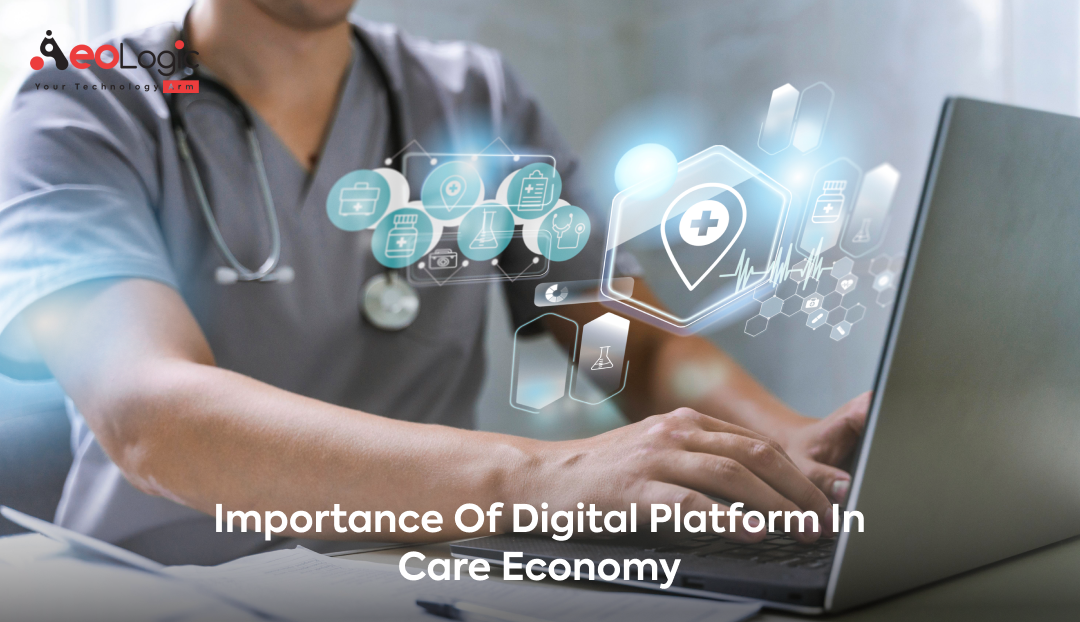The care economy has long been viewed as a backbone of our society, providing vital services ranging from childcare to elder care. It plays a monumental role in ensuring well-being and security for families and communities. As we race into an age of rapid digitalization, we can’t ignore the importance of digital platform in care economy. These platforms are not just about algorithms and data; they’re reshaping the very nature of care work, offering new opportunities, and streamlining operations. Let’s delve deep and see how they’re truly transforming the care sector.
Traceability Solutions for Supply Chains with Examples
Why Are Digital Platforms Gaining Momentum?
Before diving into our core discussion on the importance of digital platform in care economy, let’s understand why these platforms are gaining such prominence.
- Reach and Accessibility: Digital platforms widen the accessibility of services. Care providers can reach a larger audience, and service seekers have a broader range of options.
- Flexibility and Customization: With the digital interface, services can be customized based on individual requirements, ensuring a more personalized care experience.
- Efficiency and Streamlining: Automating administrative tasks and schedules has resulted in better time management and reduced overheads.
- Data-driven Decision Making: Digital platforms gather valuable data that can be analyzed to improve service quality, tailor offerings, and predict trends. This data-centric approach helps in making informed decisions, ensuring that services are always evolving and improving.
- Building Community and Trust: Through reviews, ratings, and user-generated content, digital platforms foster a sense of community. This not only aids in credibility but also facilitates trust, making users more comfortable seeking and providing care through these platforms.
Learn about New Tech Updates: How Spatial Computing is Changing the Way We Live and Work
How Does the Importance of Digital Platform in Care Economy Reflect in Numbers?
Statistics often paint a clearer picture:
- A recent study found that integrating digital platforms into the care economy can increase overall efficiency by a staggering 30%. This is an invaluable increase, especially in a sector that thrives on promptness and meticulousness.
- As per a report by World Economic Forum, by 2025, digital platforms in care services could cater to an additional 50 million individuals globally, bridging the gap between demand and availability.
Numbers don’t lie. The evident boost in efficiency and reach, as depicted by these stats, reaffirms the importance of digital platform in care economy.
Also Read: Robotic Process Automation Help Boost Carrier Efficiency
How are Digital Platforms Elevating the Care Economy?
Digital platforms are not just technological tools; they are catalysts bringing transformative change to the care economy. As we embed these platforms into our care structures, it’s crucial to understand their multifaceted impact. Let’s explore how these digital interfaces are truly elevating the standards and operations within the care economy.
Better Matching of Needs and Services
Digital platforms offer advanced matching algorithms. These ensure that those seeking care are paired with the right providers, ensuring optimum satisfaction on both sides. With accurate pairing, the quality of care is significantly improved.
Transparent and Timely Communication
Remember the days of endless waits for appointments and uncertainty about availability? Those days are behind us. With digital platforms, real-time updates, instant bookings, and transparent communications are the norms. As the famous business consultant Peter Drucker said, “The most important thing in communication is hearing what isn’t said.” Digital platforms provide clarity, eliminating guesswork from the equation.
Empowerment through Data Analytics
The importance of digital platform in care economy is further emphasized by the power of data analytics. These platforms collect and analyze vast amounts of data, offering insights into patterns, needs, and preferences. By leveraging this data, care providers can predict and better understand the needs of those they serve, leading to more effective and preemptive care solutions. This not only enhances the overall quality of care but also helps in resource allocation, ensuring that services are directed where they are needed the most.
Cost-Efficiency for Both Providers and Receivers
Digital platforms, by automating many administrative and operational tasks, significantly reduce overheads. This cost-saving is often passed on to the end-users, making care services more affordable. On the other side, care providers benefit from the reduced operational costs and can often offer their services at competitive rates, making them more attractive to potential clients. The financial advantages reinforce the importance of digital platform in care economy, ensuring that quality care is both accessible and affordable.
Enhanced Learning and Training
The importance of digital platform in care economy isn’t just about service matching and communication. These platforms offer a treasure trove of resources for care providers to upgrade their skills. From online courses to webinars, the opportunities for professional development are vast.
Real-time Feedback and Reviews
Digital platforms provide instant feedback mechanisms. This ensures that care providers get timely inputs on their services, allowing for continuous improvement. As Bill Gates once said, “We always overestimate the change that will occur in the next two years and underestimate the change that will occur in the next ten. Don’t let yourself be lulled into inaction.” The quick feedback cycle ensures that the care economy remains agile and ever-evolving.
Also Read: Why Energy Monitoring Systems Are a Game Changer for Business
Are There Challenges?
While the importance of digital platform in care economy is undeniable, it’s also essential to address the challenges that come with it.
- Data Privacy Concerns: With the digitalization of services, concerns about data breaches and privacy arise.
- Inclusivity and Accessibility: Not everyone has equal access to technology. Ensuring that digital platforms do not exclude marginalized communities is crucial.
- Dependency on Technology: Over-reliance on technology might lead to reduced human interactions, which are vital in care services.
- Overwhelming Information Flow: As digital platforms grow, the sheer volume of information available can become overwhelming for users. Sifting through endless lists of services, reviews, and options can lead to decision fatigue for service seekers.
- Lack of Standardization: With an increase in digital platforms, there’s a risk of lack of uniform standards. This could result in varying quality of services, causing confusion and inconsistency in care quality across platforms.
Addressing these challenges head-on is crucial to fully harness the benefits of digital platforms in the care economy. With proactive strategies and a keen eye on potential pitfalls, the care industry can achieve a seamless transition to the digital age.
Also Read: Transform Your Business with Customized Technology Solutions
Final Words
The importance of digital platform in care economy cannot be understated. From increasing efficiency and reach to providing continuous learning opportunities for care providers, the digital revolution in the care economy is here to stay. The challenges are real but not insurmountable. As we move forward, striking a balance between technology and the human touch will be the key to unlocking the full potential of digital platforms in the care sector.
Remember, as we navigate the digital future of the care economy, it’s about enhancing human connection, not replacing it. Embracing technology while holding onto the core values of care will pave the way for a brighter, more inclusive future.
For cutting-edge digital solutions tailored for the evolving care economy landscape, connect with Aeologic Technologies – where innovation meets excellence.






